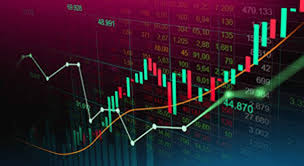Unmasking Forex Trading Scams Protect Yourself from Fraud 1838178172

Unmasking Forex Trading Scams: Protect Yourself from Fraud
The world of forex trading promises significant profits, attracting many eager investors. However, alongside legitimate opportunities lie numerous scams designed to exploit unsuspecting traders. Understanding how these scams operate is crucial to protecting yourself. In this guide, we will discuss common forex trading scams, how to identify them, and steps you can take to safeguard your investments. For further insights and information, visit forex trading scam https://onlinetrading-cm.com/.
What is Forex Trading?
Forex, or foreign exchange, trading involves the buying and selling of currencies, aiming to profit from fluctuations in their exchange rates. This market is the largest and most liquid in the world, with a daily trading volume exceeding $6 trillion. While the potential for substantial gains is appealing, so too is the risk involved. Unfortunately, this environment also attracts scammers who seek to capitalize on the inexperience of novice traders.
Common Types of Forex Trading Scams
Forex trading scams come in various forms. Here are some prevalent types to be aware of:
1. Ponzi Schemes
Ponzi schemes promise high returns with little risk, attracting investors’ funds to pay earlier backers. As long as new investors are recruited, the scam appears profitable, but it inevitably collapses when it becomes challenging to attract new participants.
2. Fake Investment Platforms
Scammers often create fraudulent websites that mimic legitimate trading platforms. They entice victims with promises of guaranteed profits and sophisticated trading algorithms. Once investors deposit their funds, they find it impossible to withdraw their money.
3. Signal Selling Scams
Many scammers sell trading signals or systems that guarantee profits. These systems often rely on misleading statistics and backtesting that do not reflect real-world performance. Unsuspecting traders can lose significant amounts before realizing they have been duped.
4. High-Pressure Sales Tactics
Scammers may employ aggressive sales tactics, urging potential victims to invest quickly without giving them time to think. They create a false sense of urgency, claiming that limited-time investment opportunities are available.
How to Identify Forex Trading Scams
Recognizing the warning signs of a forex trading scam can save you from significant financial loss. Here are some indicators of potential fraud:
1. Unregistered Brokers
Always check whether a broker is regulated by relevant authorities. Legitimate forex brokers operate under strict regulations. If a broker cannot provide proof of registration, it is best to avoid them.
2. Unrealistic Profit Promises
Be skeptical of any investment that guarantees high returns with little risk involved. All investments come with risks, and anyone promising high rewards should be viewed with caution.
3. Lack of Transparency
Fraudulent brokers often lack transparency concerning their operations. They may hide information about fees, withdrawal processes, and trading terms. Always read the fine print and ensure you understand the terms before proceeding.
4. Poor Customer Reviews

Research the broker thoroughly. Look for reviews and feedback from other traders. Be wary of consistently negative reviews and red flags indicating past issues with the broker.
Steps to Protect Yourself from Forex Trading Scams
Protecting yourself from potential scams is crucial in the forex trading realm. Here are several steps to consider:
1. Conduct Thorough Research
Before investing, research any broker or trading platform. Check for regulation, read reviews, and verify their track record.
2. Start Small
If you are new to forex trading, start with a small amount of capital. This minimizes potential losses while you learn the ropes.
3. Use Demo Accounts
Many brokers offer demo accounts that allow you to practice trading without real money. Utilize these accounts to gain experience and test strategies before trading live.
4. Educate Yourself
Take the time to learn about forex trading, market mechanics, and investment strategies. The more knowledgeable you become, the better equipped you will be to identify potential scams.
Conclusion
While forex trading offers remarkable potential for profit, it is vital to remain vigilant against scams seeking to exploit your eagerness to invest. By understanding common scams, recognizing warning signs, and taking proactive measures, you can protect your investments and navigate the trading landscape with confidence. Always remember that education and due diligence are your best defenses against fraud in the forex market.